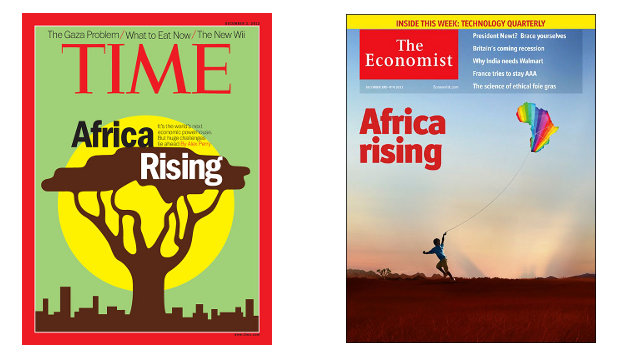Everybody loves gold. It sparkles, glitters, beautifies everything around it, adorns the lives of its users, and most importantly enhances the economic and social stratifications of the world; gold separates the ‘haves’ from the ‘have-nots’. Ever since gold was discovered in the world about 7000 years ago, it has attracted the fascination of man, and it became associated with wealth sometime around 2600BC. In fact, the ancient King Tushratta of Egypt boasted of Egypt’s gold some millennia ago, saying “gold was more plentiful than dirt”. With its vast mineral deposits, no other continent on earth can rival Africa’s wealth, and no other mineral adorns the continent like gold. Actually, South Africa contains about 50% of the world’s gold reserves, with the Witwatersrand holding the world’s largest gold reef deposits.
However, a fact appreciated by all gold admirers and users is the huge expense involved in accessing quality gold. Not only do miners have to work under extremely hazardous conditions deep into the earth’s crust, they have to endure temperatures increasing at a rate of approximately 250c per kilometre. It doesn’t take rocket science to realize that ventilation is a huge luxury at 12,800 feet below the earth’s surface, silica dust which is a by-product of mining also leads to silicosis, a very lethal lung infection, and mine collapses could obliterate hundreds of lives within minutes. Suffice to say that gold mining, or any mineral mining for that matter, doesn’t come easy.
With full recognition of the difficulties of gold mining, and the requirement of digging beneath a ton of rubble, rocks, horrible mining conditions, poor infrastructure and what not, why should a young African think that they can walk away from an established gold field to attempt breaking new grounds elsewhere? What gives them the confidence to think that it’s acceptable to ignore the opinions and persuasions of experienced miners and follow their instincts to seek raw gold in wasted lands? Better still, why do young Africans in the diaspora believe so heartedly that ignoring the better judgement of their parents and friends, leaving the reputable gold mines of Europe and America to return to Africa’s perceived fallow unproductive barrenness, enduring the least expedient working conditions in search of raw gold is a smart move?

Courtesy: www.howwemadeitinafrica.com
With the unending parade of ‘Africa Rising’ movements across the world, young Africans are being persuaded from all corners to return to Africa and be a part of the continent’s renaissance. Multinational companies have deployed their recruitment executives to scout the top colleges in the world for the smartest and brightest African talent and employ them in their African offices. The United States government and several top business schools in the world have launched initiatives to attract and train young dynamic Africans who will return to their countries and effect real change. Myriad African diaspora organizations are also organizing conferences on an almost daily basis to persuade the young, educated and gainfully employed ones to consider returning to Africa, and the media cannot do any more to emphasize the fact that six of the ten fastest growing economies in the world are in sub-Saharan Africa, and this might be the time to focus the world’s attention there.
So, with the bombardment of information, encouragement, persuasion, and the tugging from all directions, the million-dollar question is “Should young Africans return to the continent to work?” The fastest irrational ill-considered retort will be “Why should they return to Africa?” But after deep thoughtful consideration, the best answer remains “Why should they return to Africa?” And until each individual young African in the diaspora finds a satisfactory answer to that question, they had better remain, as the military say, “as you were!” Before making any hurried decisions about staying abroad or returning ‘home’, the first piece of advice is “Do not sentimentalize returning to Africa as though there were some special prize for returnees. Do what is conceivably best for you in the interim and in the future”.
Now let’s consider some special cases:
- If you’re a first-generation immigrant and ‘your hustle is paying dividends’, why would you leave? In this age, multi-national companies routinely have employees posted to various locations across the world, and chances are you may be posted closer home while retaining your employment with your company, because of your African heritage. You do not have to abandon your lucrative job in order to jump on the bandwagon of going to ‘save Africa’.
- If you’re a first-generation immigrant educated abroad and you can’t find a job abroad – your options aren’t so simple. If you are determined to succeed in America or Europe, in spite of the harsh economic realities, you might want to stick it out there for a while, but keep an active job search in Africa. If both options work out, the choice is yours. However, if you’re tired of hustling abroad with its mental, physical and emotional stress, find your way back home quickly. Your foreign certificate might put you a few steps ahead of the home-based competition.
- If you’re a second-generation immigrant, with parents and family members who are comfortably settled abroad, but a few ‘Africa Rising’ conferences have shifted your focus, your options are not so straight-forward. You will be kicking against the pricks if you do not make proper calculations before getting on that Arik or Kenyan Airways flight. You might want to make a few scheduled visits to your home country to establish solid partnerships before moving your huge suitcases. If your exploratory visits do not prove encouraging, you had better reconsider.
- If you’re a first-generation immigrant with a family settled abroad, chances are you’re not really considering the big move. However, a decade or so abroad might have led you to consider introducing your children to African culture or planning a top-management level transition into a reputable organization. Most likely, you’ll be able to afford life ‘at home’, in spite of infrastructural challenges.
- If you’re a first-generation immigrant currently getting a bachelor’s or graduate degree, or recently graduated, you’re the one with the big question mark. The choice is really up to you. Most likely you went abroad in order to improve your chances of succeeding in the global market; have you achieved your goal? Do you have enough now to put you in good stead to make that big contribution to Africa or the world? Have you received an attractive internship or job offer from the organization of your dreams? Have you established a solid professional network with high-level contacts? Or have you finalized your business plan and lined up trustworthy partners for that entrepreneurial venture?
Let us not forget what this is all about: gold. Figuratively. We all want to be gainfully employed, either entrepreneurially or in professional careers; we all want to earn enough to be able to afford some of the conveniences of life, cater for our families, contribute to charitable causes, and save some for the next generation. Gold enables us to do just that, but choosing the right gold field to set up a mine requires wisdom. Not everybody is a gold explorer; some of us just like the bling. If you’re not built for the hustle, stay where you are and promote African causes with all your energy; that’s a contribution too. If you’re comfortable enough to support your family, provide inspiration for millions back home, establish job security, build a solid reputation and find peace, again stay where you are.
This is not an attempt to discourage young, able and willing Africans from returning to contribute to the continent’s undeniable resurgence. Even the blind can perceive that Africa is finally on the cusp of greatness, and this time the promise is real. The danger however is the development of a ‘mob mentality’, through which sensationalism overtakes logic. There is a tendency for young susceptible Africans in the diaspora to over-dramatize their desire to return ‘home’, walking away from hard-earned opportunities and missing out on openings for tremendous personal and professional development. A young African who returns to the continent ill-equipped is of lesser benefit to the continent’s growth than a home-based revolutionary whose perspective hasn’t been obscured by Western fascinations.
After all is said and done, the big question is “Why do some people endure all the hardship, the long hours beneath the earth’s surface, the extreme heat, the exposure to hazardous dusts and gases, the physical demands and mental stress, in search of gold dust?” It’s all about the promise. Not everyone is an explorer. Exploration requires mental strength, unmatched foresight, extreme determination and a solid strategy. Those who live in gold know exactly how to earn it. For them, it’s not enough to purchase a gold necklace; they have to build gold castles. Returning to Africa will not be easy for everyone, but it will be very rewarding for those who know how to explore. This is not a team sport; each individual must choose for themselves whether to forget the African gold, or to dig in for the long haul. After all, Africa is still rising!



I read this… very insightful